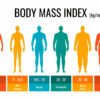Hypothyroidism, or underactive thyroid, is 10 times more common in women than men.
Hypothyroidism (insufficient thyroxine) affects 2 in every 100 women in the UK and is most common in women aged 40 to 50, although you can develop it at any age. The risk increases with age, family history and if you’ve just had a baby.
The most common symptoms of hypothyroidism include relatively fast weight gain, or inability to lose weight, dry skin and hair, fatigue, depression and a puffy face. Also migraine, loss of libido, infertility and poor memory.
Symptoms of hypothyroidism are varied and usually appear over a period of time. They are often put down to a busy lifestyle, needing a holiday, getting older and middle-aged spread.
Fortunately, hypothyroidism is perfectly treatable, so if you are having unusual problems with your weight, ask your doctor to test your thyroid.
Hypothyroidism & Food
If you suffer from hypothyroidism or an underactive thyroid, you should eat more iodine-rich foods like fish, kelp, nuts, seeds and oily fish.
Avoid or eat less iodine-suppressing foods like cabbage, Brussels sprouts, broccoli, cauliflower, and soya beans.
Avoid caffeine drinks like coffee, cola; avoid stimulants like smoking and alcohol and reduce stress.
Regular exercise is also essential for anyone with hypothyroidism.
Diet Advice
For healthy sustained weight loss, choose a diet that follows the Food Pyramid Guidelines and offers diet support, exercise advice and weight loss motivation.
Choose Anne Collins Weight Loss ProgramDiet News & Advice Index











